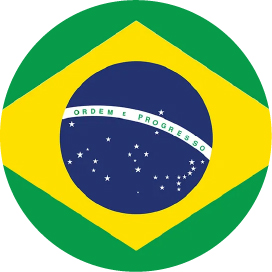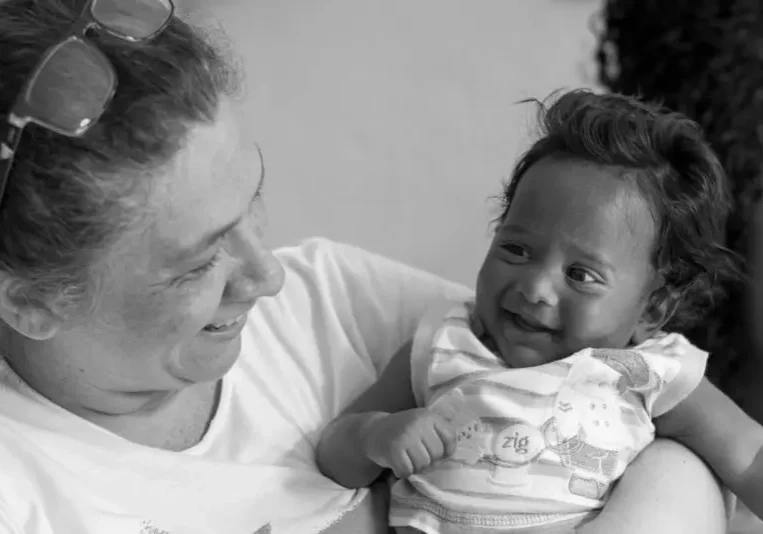
Word Made Flesh Brazil, known as Palavra Encarnada, is called by God to offer a prophetic witness to the city of Rio de Janeiro, especially to those who struggle with and suffer from drugs, poverty, broken families and violence.
Brazil, a nation renowned for its rich cultural heritage and natural splendor, endures increasing challenges associated with poverty. Despite being one of the world's largest economies, the country contends with notable income inequality, limited educational and healthcare opportunities, the presence of urban slums (favelas), and social marginalization, particularly impacting vulnerable communities and rural areas.
Mission Statement
WMF Brazil are called by God to offer a prophetic witness to the city of Rio de Janeiro, especially to those who struggle with and suffer from drugs, poverty, broken families and violence especially women and children who live in situations at risk.
Brazil is a diverse country with energetic people, descended from various backgrounds including native Indians, African slaves, European settlers, and immigrants. It is the only Portuguese-speaking country in South America and is known for its natural wonders. Brazil is the fifth largest country with a strong economy, yet it faces significant wealth inequality. Rio de Janeiro, with approximately 9 million inhabitants, has a considerable population living in poverty, particularly in the favelas. In 2009, Word Made Flesh Brazil, known as Palavra Encarnada, was officially registered with the Brazilian government, and their first general assembly and board meetings took place.
Programming

Downtown Street Ministry
WMF staff and volunteers are in relationship with about 60 children, adolescents and young families who live on or frequent the streets of downtown Rio de Janeiro. Ministry activities include soccer, art and educational activities, Bible teaching, worship and music, meals and prayer. WMF also assists in procuring necessary documents and government identification, as well as negotiating the legal system to assist families with people in jail or whose children have been taken away by social services. WMF staff periodically make home visits to families who spend time or work on the street in an attempt to encourage and support lives at home.


Women’s Center
The Esther Project, locally known as Projeto Ester, is a day center that exists to serve women on the streets of Rio, a place where women on the streets can care for themselves and their children. Our motto is “Christ raising up women, women exalting Christ.” Women come to the center to participate in Bible study, games, art, education, and field trips. In addition, the center offers assistance with legal matters and documentation to those in need.
Partner Ministries
Projeto Vidinha is a Christian care home for adopted and at-risk children. WMF staff minister at the home as mentors and volunteers. The WMF sponsorship program, initiated in 2006, pairs children from the home with U.S.-based families who provide financial assistance. The children are supplied with basic necessities and educational assistance while opportunities are given for friendships to develop between the supporting families and the children. In 2010, funding was provided for four children to attend school. In addition, WMF assisted by providing school books, uniforms and supplies as well as nutritious food for the other twelve children at the home.Timonis is an after-school program located in a favela in the north zone of Rio de Janeiro. Ministering to children from the poorest and most dangerous part of the community, Timonis offers a variety of activities: Bible stories, art, music, recess time, snacks, tutoring, psychological assistance and home visits. WMF staff work in partnership with Timonis as street educators and teachers.
Brazil Blog
2008-09-01
Have you ever heard of the Slow Food Movement? The organization defines themselves this way: “Slow Food is a non-profit, eco-gastronomic member-supported organization that was founded in 1989 to counteract fast food and fast life, the disappearance of local food traditions and people's dwindling interest in the food they eat, where it comes from, how…
2008-06-01
“Blessed are they who maintain justice, who constantly do what is right” Psalm 106:3 Scripture refers repeatedly to the widow and the fatherless as groups of people who are most vulnerable to oppression. Those who can't protect themselves, those who are at the mercy of others, those who have such a small voice that…
2008-02-01
Dear Friends, I see people suffering every day. Even when we aren't visiting with our friends on the streets or in children's homes, we pass by teenagers, families, and mothers with small children sleeping on the streets or begging change. When we do visit our friends, we witness the extent…
